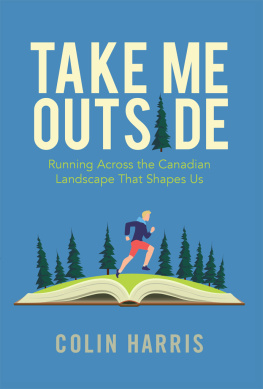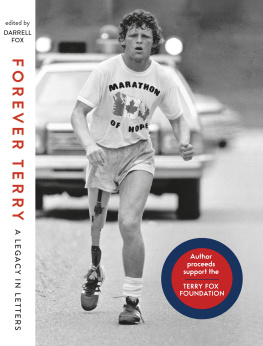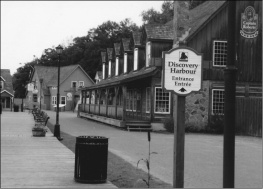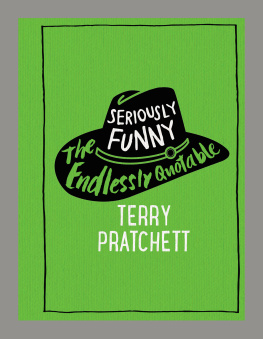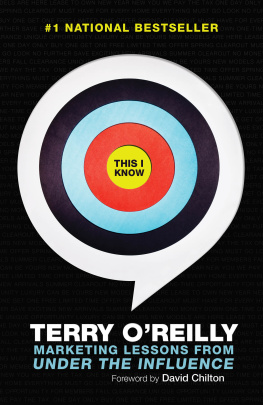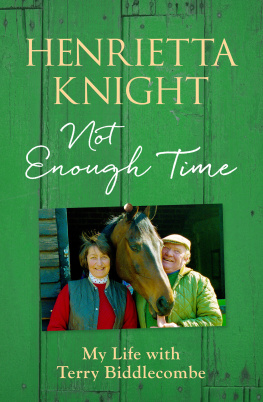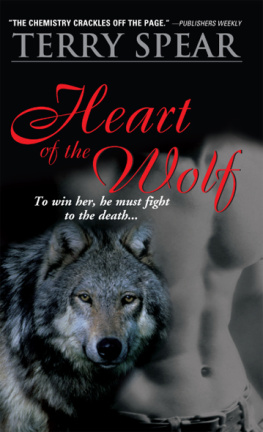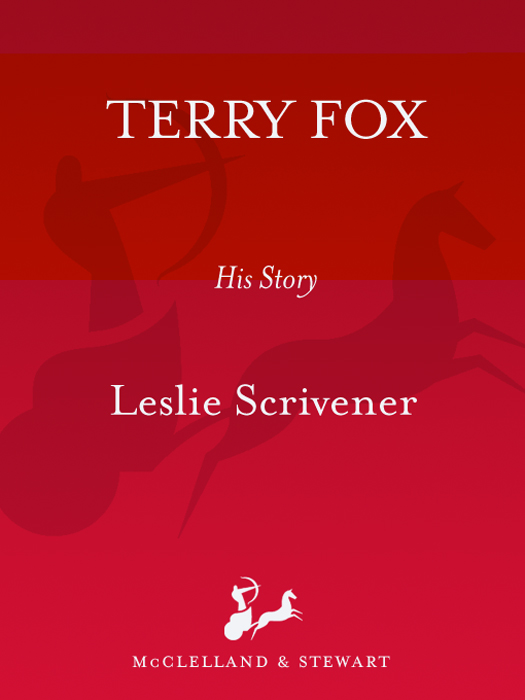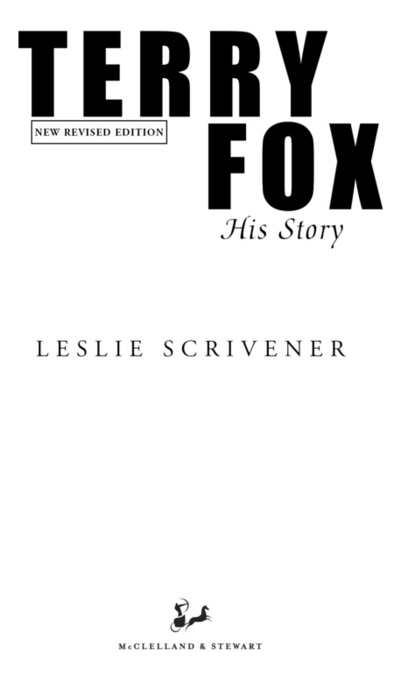Copyright 1981, 1983, 2000 by The Terry Fox Foundation
Original edition published 1981
Revised edition published 1983
New revised edition published 2000
All rights reserved. The use of any part of this publication reproduced, transmitted in any form or by any means, electronic, mechanical, photocopying, recording, or otherwise, or stored in a retrieval system, without the prior written consent of the publisher or, in case of photocopying or other reprographic copying, a licence from the Canadian Copyright Licensing Agency is an infringement of the copyright law.
Library and Archives Canada Cataloguing in Publication
Scrivener, Leslie, 1950
Terry Fox: his story
New rev. ed.
eISBN: 978-1-55199-586-1
1. Fox, Terry, 1958-1981. 2. Cancer Patients Biography. 3. Runners (Sports) Canada Biography. I. Title.
RC263.S37 2000 362.1969940092 C00-931194-7
We acknowledge the financial support of the Government of Canada through the Book Publishing Industry Development Program and that of the Government of Ontario through the Ontario Media Development Corporations Ontario Book Initiative. We further acknowledge the support of the Canada Council for the Arts and the Ontario Arts Council for our publishing program.
Map by VisuTronx
McClelland & Stewart Ltd.
75 Sherbourne Street
Toronto, Ontario
M5A 2P9
www.mcclelland.com
v3.1
CONTENTS
For David
PREFACE TO THE NEW,
REVISED EDITION
For many of us who were lucky enough to see Terry Fox run across Canada in the summer of 1980, it seems impossible that twenty years have passed. Terry remains forever young caught in those summer days of courage and joy and heartbreak. Yet much has changed as not only Canadians but people around the world have caught on to Terrys dream of finding a cure for cancer.
The first edition of Terry Fox: His Story was written while Terry was still alive. This new edition, which commemorates the twentieth anniversary of his Marathon of Hope, brings us up to date on Terrys legacy the $250 million raised in his name, the stories of men, women, and children who work in his memory, and the scientists whose research is made possible through Terry Fox grants. There is also the greater gift of his example of hope, which we saw pounded out on Canadas highways. Darrell Fox asked me to revisit Terrys story, and I thank him for this chance to think and write about Terry once again. I would never have guessed how deeply Terry affected many people and how alive and real he became to those who never knew him until I talked to those people myself. Its been a joy and a privilege.
I have run the great race
I have finished the course
I have kept faith
And now the prize awaits me
2 Timothy 4:7-8
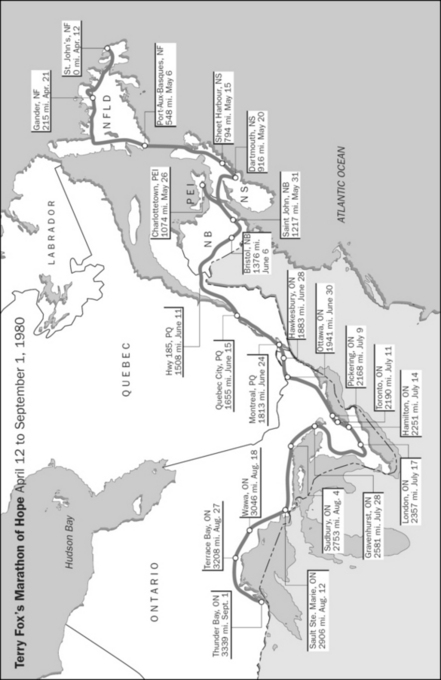

THE WHOLE THING WAS
SUCH AN ADVENTURE
T he whole thing was such an adventure and all of it was happening to me. People began calling me a hero, but as far as I was concerned, I was just simple little old Terry Fox. I was like Dorothy in The Wizard of Oz, going through this great big adventure, going places she had never been and seeing things she had never seen before and things happening that had never happened.
I loved it. I enjoyed myself so much and that was what other people couldnt realize. They thought I was going through a nightmare running all day long. People thought I was going through hell. Maybe I was, partly, but still I was doing what I wanted and a dream was coming true and that, above everything else, made it all worthwhile to me. Even though it was so difficult, there was not another thing in the world I would rather have been doing.
I got satisfaction out of doing things that were difficult. It was an incredible feeling. The pain was there, but the pain didnt matter. But thats all a lot of people could see; they couldnt see the good that I was getting out of it myself.

IF ITS ONLY UP TO ME
O n April 12, 1980, Terry Fox stood with his back to the sea, his arms behind him and his eyes straight ahead, his mind fixed on a distant shore. All of Canada 5,300 miles, ten provinces stretched as in a dream before him, and in a moment he would take his first steps towards that dream. He was going to run across Canada.
They knew something of dreamers in St. Johns, Newfoundland. Canadas most easterly city, set on rock above the Atlantic Ocean, was either the beginning or the end for cross-country travellers. It seemed as often as once a week, a young man like Terry, strong and full of purpose, wanted to run or cycle across Canada for a cause he believed in. Some hoped for a little more attention. Some they never heard from again. On this bitterly cold, rainy morning winter was still abounding, as they put it they were preparing another goodbye and good-luck ceremony.
Terry was more interesting than many. He had sponsors, he had the support of the Canadian Cancer Society, he had Canadas national broadcaster, the CBC , preparing to record his start, he had a handsome face, perfect teeth, and curly hair. And he had only one leg. His right leg was a stump, amputated six inches above the knee, and attached to it was a prosthesis, an artificial leg consisting of a fibreglass bucket with a steel shank. His left leg was taut and muscular.
Hed started his day at the Holiday Inn. He pulled on a pair of jeans and a ski jacket and went downstairs for breakfast. The hotel was looking after his meals and room while he was in St. Johns, and that made him happy. It was a sign that people were taking him and his dream he called his journey a Marathon of Hope seriously. It could have been a bad joke. After all, a one-legged runner who dreamed of crossing Canada? Most crosscountry runners preferred to start in Vancouver and take advantage of the westerly winds. These runs often ended in Halifax, Nova Scotia, a journey nine hundred miles shorter than the one Terry planned.
He ordered a meal loaded with carbohydrates. He didnt care if he was teased about his appetite. Let them laugh at his French toast, hash browns, and muffins. He knew they were foods that gave him energy; the calories served their purpose.
With Terry was his old school friend and fellow athlete, Doug Alward. Shy, soft-spoken, patient, and loyal, Doug was twenty-one, the same age as Terry. He was slightly built, with dark, thinning hair and glasses. Together they left the hotel to look at their brand-new camper van, donated by Ford of Canada and outfitted by Funcraft. It had air conditioning, a stove, a fridge, a washroom, a stereo, and it could sleep six. On the side was printed MARATHON OF HOPE CROSS COUNTRY RUN IN AID OF CANCER RESEARCH . The inside was a disorganized muddle of groceries: boxes of cereal, oranges, chocolate chip cookies, bags of chips, boxes of doughnuts, tins of stew and spaghetti, peanut butter and jelly.
Later, Donna Green, a girl Terry had met at the Newfoundland Summer Games, stopped by to give him a good-luck card and a pennant. Terry, who had wanted to collect mementos of his trip, thought that pennants from every town along the way would be a good way to remember his route. Back at the hotel, he took a nap until Bill Strong, field supervisor for the Canadian Cancer Society, stopped by to take him for a drive.



